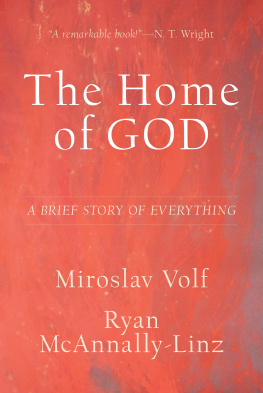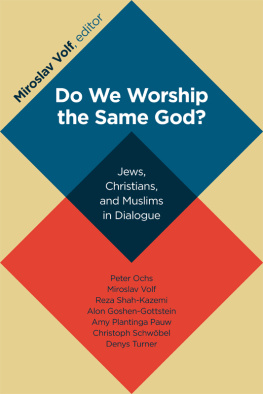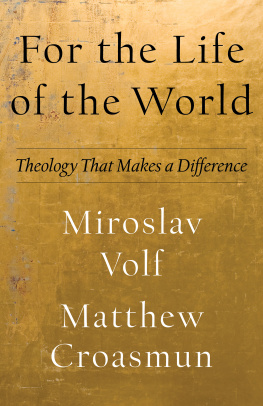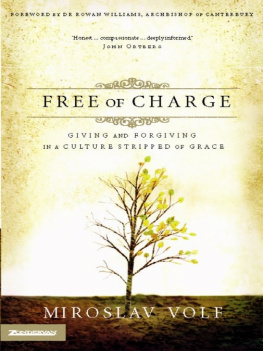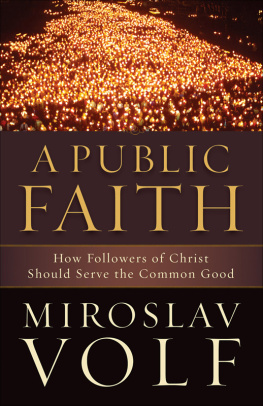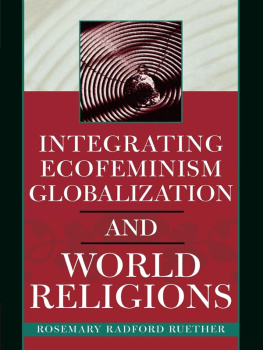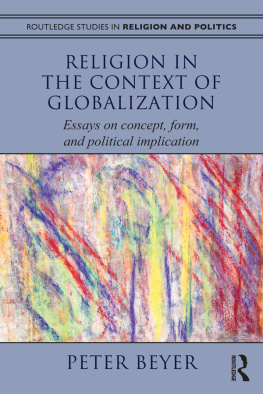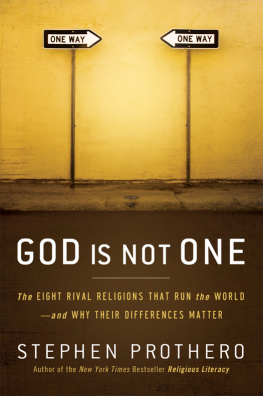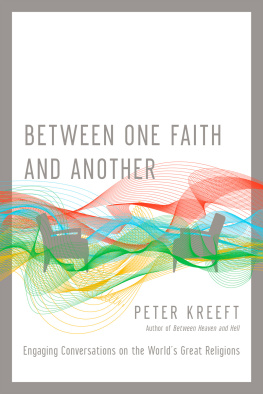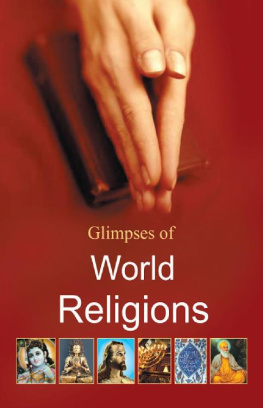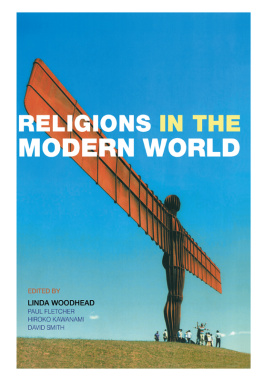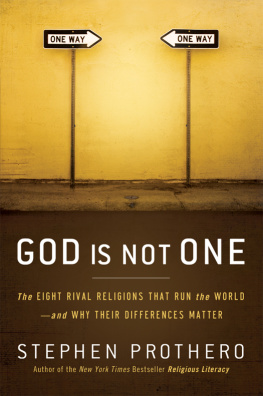Flourishing
Flourishing
Why We Need Religion in a Globalized World
MIROSLAV VOLF

Published with assistance from the Ronald and Betty Miller
Turner Publication Fund.
Copyright 2015 by Miroslav Volf.
All rights reserved.
This book may not be reproduced, in whole or in part, including illustrations, in any form (beyond that copying permitted by Sections 107 and 108 of the U.S. Copyright Law and except by reviewers for the public press), without written permission from the publishers.
Yale University Press books may be purchased in quantity for educational, business, or promotional use. For information, please e-mail (U.K. office).
Designed by Sonia L. Shannon.
Set in Fournier type by Integrated Publishing Solutions, Grand Rapids, Michigan.
Printed in the United States of America.
ISBN 978-0-300-18653-6 (cloth : alk. paper)
Library of Congress Control Number: 2015942789
A catalogue record for this book is available from the British Library.
This paper meets the requirements of ANSI/NISO Z39.481992 (Permanence of Paper).
10 9 8 7 6 5 4 3 2 1
For Jessica
Contents
Preface
Flourishing is the title of this book. It stands for the life that is lived well, the life that goes well, and the life that feels goodall three together, inextricably intertwined. I use the term interchangeably with the good life and life worth living. It evokes an image of a living thing, thriving in its proper environment: a tree planted by streams of water, which yields its fruit in its season and whose leaves do not wither (Psalms 1:3), a sheep lying down in green pastures and walking beside still waters (Psalms 23:2), an eagle, with great wings and long pinions, rich in plumage of many colors (Ezekiel 17:3). Though these images may strike some as too pastoral for fast-track modern lives, most readily embrace the idea they represent: the good life consists not merely in succeeding in one or another endeavor we undertake, whether small or large, but in living into our human and personal fullnessthat, in a word, is a flourishing life.
The image is compelling, but many, especially the young, have a sense that humanity is doomed to languishing, stuck in the valley of the shadow of death (Psalms 23:4), in the land of deep darkness (Isaiah 9:2), even if they dont use the words of psalmists and prophets to express the sentiment. Ours are certainly not the darkest of all times, but I can understand the pessimism. Climate changes wreaking devastating impacts on the environment; likely global pandemics; great and growing discrepancies in power, wealth, and skill; emerging artificial intelligence menacing humans with redundancy; the global reach of barbaric terror burning and beheading enemies and destroying artifacts of our great civilizationsthese and other threats place an ashen mantle of melancholy on many. Though we can identify threats, each threat is also an unknown, a known unknown, as it is sometimes called, placing before us an uncertain future; and we are haunted by a sense that these might be just the first scrawny cows of the Pharaohs dream (Genesis 41), to be followed by moreunknown unknowns, perils of which we arent yet even aware. Some are paralyzed by the thought of the world coming to a full stop, with all human life extinguished, as in Lars von Triers Melancholia. Others fear a postapocalyptic, dystopian futureurban wastelands and deserts with survivors locked in conflict, fumbling to lace together the shreds of their own humanity and civilizational ties. Even in the absence of such nightmarish scenarios, in the world as it stands today, too many of us believe that human lives are and will forever remain bereft of meaning, caught in a pointless dance of light and darkness as if in a segment of some random cosmic lightshow. If you are a pessimist of this sort, flourishing will seem to you a wistful word, an impossible dream from a la-la land world.
The two most potent images of human flourishing in the Western cultural traditions come from the Bible, from the opening chapters of its first book and from the final chapters of its last. One is an image of the verdant garden, beautiful and nourishing, a habitat for humans to till and keep and a temple in which to converse with their God (Genesis 2). The other is of a universal city that has become a temple, the new Jerusalem on a new earth, rich in the glory and honor of nations and utterly secure (Revelation 21). For those who embrace them, these images arent mere dream-clouds, floating around in the sky of religious fancy. They are part of a grand narrative arc starting with worlds creation and ending with new heavens and the new earth, of which the Hebrew Bible and the Christian Scriptures tell; and both, the grand arc and the visions of flourishing, are rooted in convictions about the reality of the One who dwells in inapproachable light. The promise of these visions of flourishing is a prize jewel in the treasury of the Christian faith, one of its best gifts to the world. Adherents of other religions and secular humanists perhaps use different images, but their own faiths offer a similar pledge of hope.
Von Triers Melancholia ends with two sisters and a child huddled in an improvised temple made out of slender and sparse sticks as the bright light of a world-annihilating asteroid approaches. Is this an image of a leap of faith into the light? Or is it a symbol of the absurdity of religion in the face of the unconquerable darkness that is, ultimately, this universe itself? Von Trier leaves us guessing. In a sense, in this book I am leaving that question open as well. Are the convictions that underpin religious visions of human flourishing true, or are they beautiful but deceitful stories, celestial echoes of the fragility and meaninglessness of the lives of those to whom they promise protection and flourishing? How do they stack up against secular accounts of reality claiming to be based on hard science? If religious convictions and visions of flourishing are true, are all of them true? If only one religion is true, which one is and why?
These are important questionsand I completely bypass them in this book. Instead, I focus on the claim that gives these questions their importance in the first place and demands that we wrestle with the issue of their truth or falsity. The claim is this: far from being a plague on humanity, as many believe and some experience, religions are carriers of compelling visions of flourishing. In this book, I highlight key elements of these visions in world religions, sketch why they are needed in a globalized world, and explore how religions can advocate and embody them peacefully and in concert while taking seriously the claims to truth they make.
Acknowledgments
Since the roots of this book lie in the Faith and Globalization seminar conducted at Yale University in the fall semesters of 200811, I must first thank my co-teachers. I am grateful to Prime Minister Tony Blair, with whom I taught the first three iterations of the course, for pulling me in to work on the topic and for the vigorous Thursday morning discussions we had as we were preparing for the afternoon sessions. I owe much to Philip Gorski, a colleague from the sociology department with whom I taught the fourth iteration of the course, especially for opening my eyes to complexities of secularization and of the relation between nationalism and violence. In 2010 I gave a version of the course as a summer seminar for junior faculty at Calvin College. Three years later an early draft of this book served as the basis for a seminar for international young diplomats and scholars of religion and politics organized by the American University in Kosovo, the Kosovo Ministry of Foreign Affairs, and the Tony Blair Faith Foundation. At all three places I was blessed with wonderfully inquisitive and insightful participants from around the world representing a variety of academic disciplines.
Next page

